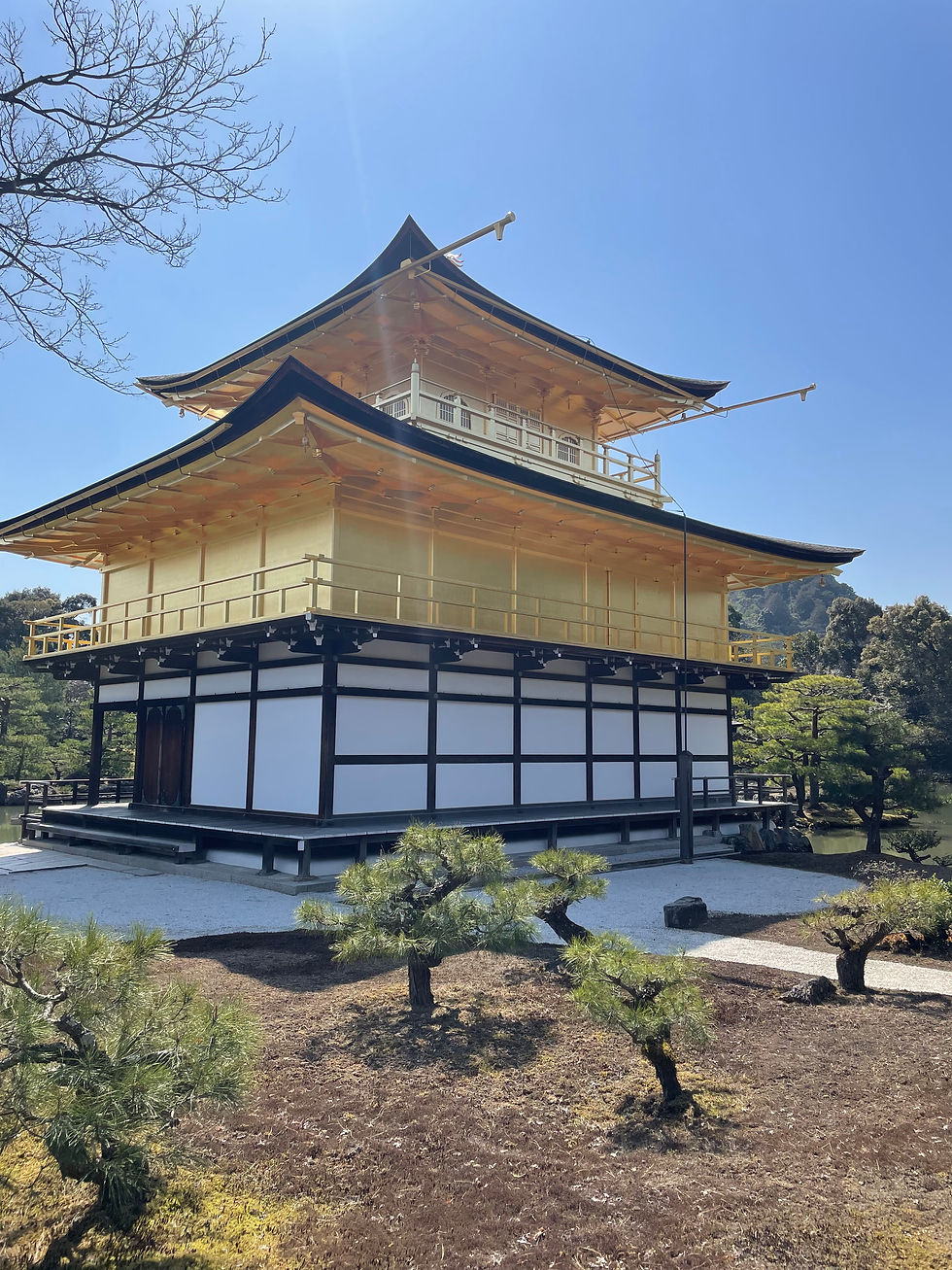Lessons in Longevity from Japan
- Rachael Roberts

- Apr 12, 2025
- 3 min read

During March, I travelled to Japan with my family and WOW, what an incredible place! Japan has the most HEALTHY aging population in the world. I call them super agers, and I learned so much about the culture and lifestyle that promotes longevity. This might be an unpopular opinion but I feel we are getting something wrong in this county. Walking aids are almost expected to be given to older people… In Japan, older people are walking everywhere and there are no walking aids in sight. When we landed in Manchester there were at least 7 wheelchairs lined up to help older people leave the plane and get through the airport. Of course, I have NOTHING against wheelchair users and people that need wheelchairs or walking aids, but why did so many older people not have the mobility to walk across the airport?
Longevity isn’t just about staying fit and mobile. It is about your energy, the way you live life and of course, how you nourish yourself. I do not want to be like this when I am older. I want to be like the SUPER agers in Japan so I am investing in myself now! If you want an upgrade for your health, take on these three things that I learned in Japan.
Rituals
Energy
Washoku
The Japanese Onsen is incredible. It has been made into a ritual that everyone enjoys. The onsen natural hot spring is healing and contains rich minerals, which soothe muscles, promote circulation and leave your skin feeling amazing. I seriously had the best nights sleep after my first Onsen in Hakone. We had an Onsen bath in our room and my baby boy slept SO well after his first Onsen. Can you imagine having this daily ritual in your life? The impact this would have on your nervous system, and overall health would be powerful! Hydrotherapy was actually one of the first natural therapies and this makes sense. So, is there anything stopping you having a simple bath more regularly and even boosting it with epsom salts to support relaxation and sleep?
In Japan there’s a palpable difference in the energy, it permeates everywhere from the cities to the mountains. As Japan is the birthplace of reiki, I felt the country and people embody the deep understanding of life force energy. There is a cultivation of harmonious energy from Japanese people that creates an atmosphere unlike anywhere else I have been. Reiki is recognised in the NHS for its healing properties and when I was in Kyoto, I experienced a special reiki healing session, and I am still experiencing the benefits from it. I have always believed that you can see energy around you and feel it from people. To me, protecting and investing in your energy is such an important part of cultivating the life you want to lead and if energy is healing, it certainly creates health within. How do you nurture and cultivate the energy you want to radiate? I can recommend trying reiki to learn more about your energy.
Washoku (和食), meaning Japanese cuisine, was delicious and so different to the western diet. Washoku is UNESCO Cultural Heritage recognised because of the traditional processing, preparation and consumption of foods. The fermented foods, rice, seafoods and vegetables all have numerous health benefits, evidenced by the thriving aging population. Beyond the unique textures and flavours of the food, what distinguishes Japanese culture is the intentional way meals are consumed. Hara Hachi Bu (腹八分目) is the mindful consumption of food, eating to 80% full, which improves digestion, supports weight management and promotes longevity. The mindful approach reduces stress, improved insulin sensitivity and reduced inflammation, which are key factors in preventing disease. I definitely noticed it when I came back home and my usual portion felt like too much! To embrace these benefits yourself, practice Hara Hachi Bu and enhance your experience by taking 10 deep, slow breaths before you eat to cultivate mindfulness and prepare your digestive system.



Comments